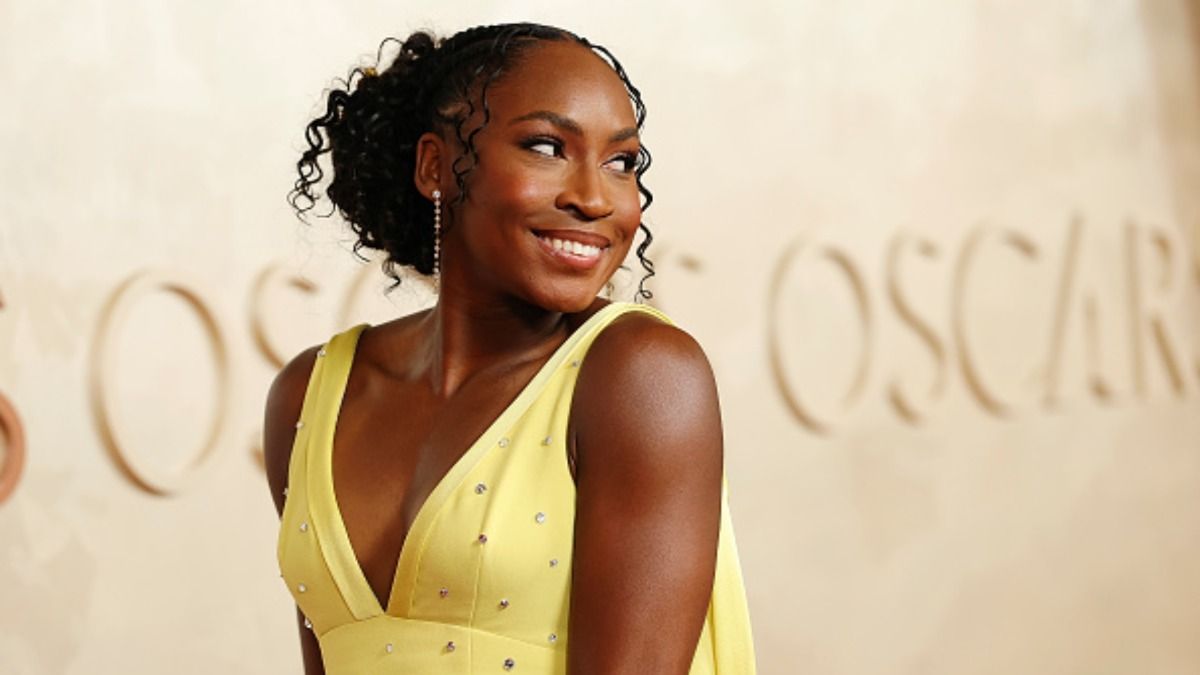Wimbledon champion Barbora Krejcikova hits back after US journalist mocks her ‘forehead’

As one of the more reserved players on the women’s tour, Barbora Krejcikova has never been one for the limelight. Yet the two-time Grand Slam champion found her voice after prominent US commentator Jon Wertheim mocked her and Zheng Qinwen for the size of their foreheads during the Tennis Channel’s coverage of the WTA Finals.
The Wimbledon champion felt compelled to speak up after Wertheim, unaware that the cameras were rolling in the studio, ridiculed both players’ appearances in a hot-mic gaffe which left presenters in the studio red-faced.
“What do you think I am? Barbora Krejcikova?” Wertheim could be heard asking. “Look at the forehead when Krejcikova and Zheng take the court.”
The comment did not go down well with Krejcikova who, in calling for “respect and professionalism” from the media in a lengthy statement on X, rightly noted that the incident was not “the first time something like this is happening in the sports world”.
Wertheim’s clumsy and sexist jibe – which he made thinking he was not on air after cameras briefly flashed back to the studio during coverage of a WTA Finals doubles match – had echoes of the time John Inverdale infamously mocked Marion Bartoli’s physique in 2013 after the Frenchwoman won Wimbledon.
Inverdale’s dinosaur remarks – that Bartoli was “never going to be a looker” – caused a furore and prompted the BBC to issue a wholehearted apology. He never lived the incident down during his latter years at the corporation.
Men still clearly preoccupied with how female players look
It was an unnecessary, embarrassing moment which should have served as a wake-up call for other broadcasters in tennis, a sport that proclaims to be the most gender-equal despite the occasional scheduling mishap at Grand Slams.
But fast forward nearly a decade, men are still clearly preoccupied with how female players look, rather than instinctively appreciating their athletic ability. It also confirms how, despite the elevated profile women’s sport now enjoys, female bodies are still needlessly policed, while their male counterparts are routinely glorified.
Nobody ridicules Jack Grealish for having massive calves, which are revered as his very own super-strength. In a similar vein, Arsenal goalkeeper David Raya is practically marvelled as a superhuman for his gigantic hands. Yet for women, their bodies and appearances are viewed through a negative prism whenever they step into the sporting arena.
Wertheim’s own blunder comes just three months after Eurosport removed Bob Ballard from its commentary team at the Paris Olympics after he made a sexist remark about Australia’s female swimmers, saying the 4x100m freestyle team were “hanging around, doing their make-up” after they won gold.
Just last week, one male commentator was slammed for his sexist remarks after saying Lioness Ella Toone had a “face like a slapped bum” after the Manchester United midfielder was substituted in her side’s Women’s Super League clash with Arsenal.
In taking issue with Krejcikova’s and Zheng’s appearance, Wertheim’s remarks had shades of those who regularly attacked the former British Olympic swimming champion Rebecca Adlington over the size of her nose.
As an experienced pundit in his field, he should have known better, but this latest incident is a galling reminder of how women have to work double hard to earn the same level of respect as their male counterparts.
Related
Danielle Collins prepares gift for Djokovic as she continues at…
Danielle Collins has vowed to gift Novak Djokovic some of her merchandise after the Serb offered his support to the WTA star. Collins hasn’t been afraid to sp
“Second-Guessing Herself”: Jessica Pegula Unpacks the Inspiring Comeback of Newlywed…
What a year this has been for American women’s tennis! We’ve seen plenty of title triumphs, but if asked to single out one big win among those, it’d surel
Coco Gauff rarely gets…”: American tennis legend weighs in on…
A former American tennis superstar has leaped to Coco Gauff’s defense after the 20-year-old phenom faced backlash for her recent Oscars appearance—a glamoro
Novak Djokovic over LeBron James and Cristiano Ronaldo? American tennis…
A former American tennis great has sparked a firestorm in sports debates by declaring Novak Djokovic the greatest athlete of the modern era—surpassing icons l











